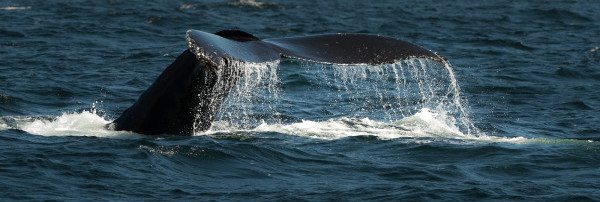Whaling – a fishy issue
[dropcap]I[/dropcap] am a vegetarian, I am an advocate of animal welfare and, most importantly I suppose, I adore whales. It’s not the most ordinary of loves, but they’re big, calm and can eat a lot; qualities I greatly admire.
It is natural then for Japan’s stance on whaling to be troublesome for me, as well as for many other people. In 2014 the Japanese whale hunt was stopped by the International Court of Justice, but this year Japan has resumed it. The BBC and many other media outlets have reported on Japan’s departure for the Antarctic.
In 2014 the Japanese whale hunt was stopped by the International Court of Justice, but this year Japan has resumed it.
Japanese culture and the industry of whaling, in the eyes of most, are almost intrinsically linked. However in recent decades, the practise of whaling has caused mass international controversy. Japan’s involvement in the whaling industry is argued to be for “research purposes”. The whale meat which subsequently makes it onto the Japanese market for public consumption is said to be a natural by-product of this research. This is highly debatable.
The first issue which needs addressing for me is the sustainability of such hunts. Japan has stated that it intends of hunting Antarctic Minke Whales, a species of which the endangerment is unknown by the International Union for Conservation of Nature. Estimates vary widely however the population is presumed to be at approximately half a million.
The whale meat which subsequently makes it onto the Japanese market for public consumption is said to be a natural by-product of this research. This is highly debatable.
It could be assumed Japan’s whaling would have very little impact, as they have claimed to only intend on capturing 333 whales. However allowing Japan to once again practise commercial whaling is a great risk to whale populations. Under heavy guidelines and great international scrutiny, Japan is forced to hunt as few whales as possible to fulfil their needs. Given free reign, global commercial whaling could hugely diminish populations of many whale species.
Possibly the most pressing concern for me though is the morality of such a hunt. Whales are considered to be highly intelligent, self-aware and familial animals. So aside from the unsustainability of whaling, perhaps the greatest argument for the ceasing of the practise is in fact our own morality. The use of whales for entertainment has been sanctioned recently, meaning that orca can no longer be captured or bred in captivity.
There is evidence to suggest whales can fall victim to a form of psychosis. Therefore Minke Whales which are left alive following the hunt are still subject to psychological trauma. Further to this, the actual process of killing the whales is long and painful. Often harpooned in the water before being dragged onto boats, many whales are made to suffer unnecessarily.
So aside from the unsustainability of whaling, perhaps the greatest argument for the ceasing of the practise is in fact our own morality.
This sort of cruelty would not be tolerated under regular circumstances in any abattoir, and therefore it is only right to hold these hunts to the same standard. The almost unregulated practice of whaling is outdated. Whale meat is no longer a necessity in the Japanese food industry, so surely this cruelty is just self-indulgent and needless?
The abuse of whaling by Japan, as well as other countries, is inexcusable. It is as unnecessary as it is cruel. However, the recent media focus on the issue of whaling is promising. I can only hope that these docile and intelligent animals will gain the international protection that they need, and the barbaric Japanese Antarctic hunt will finally be stopped.

Comments